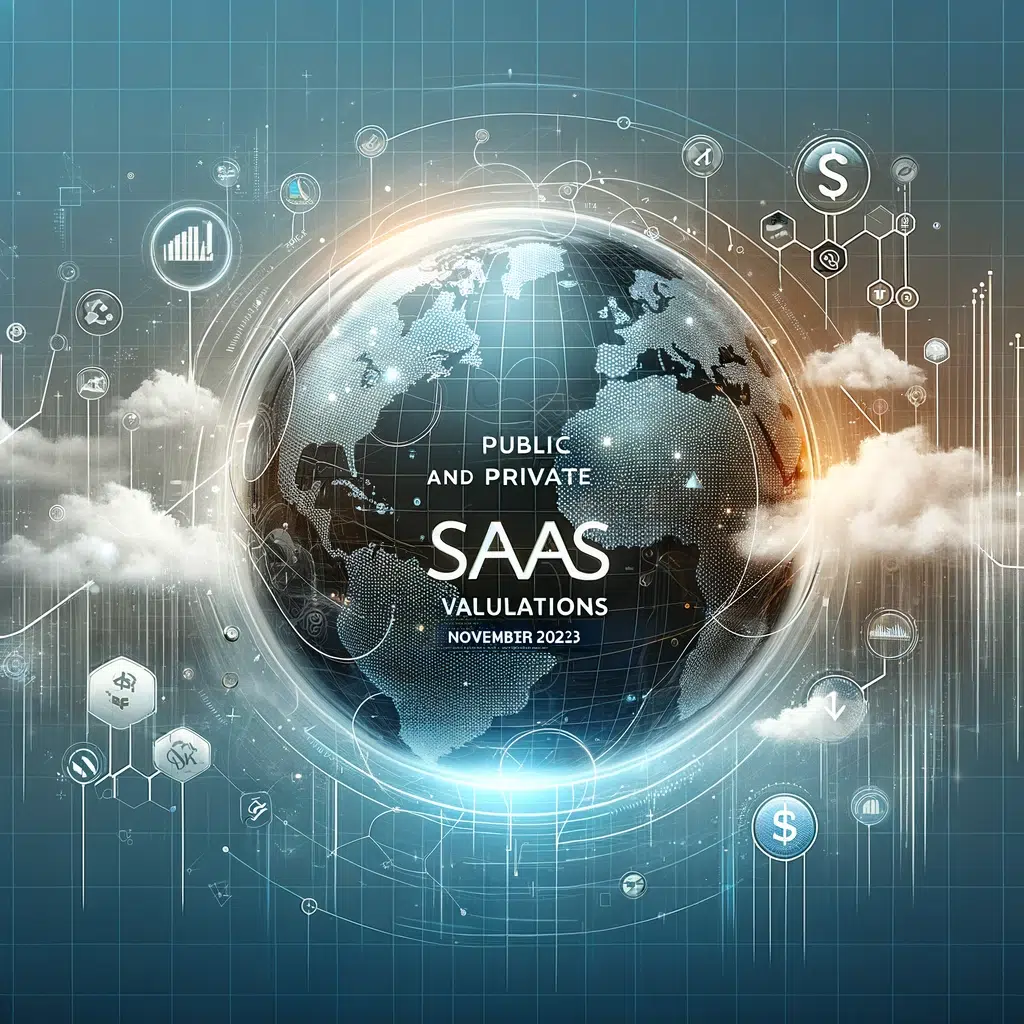I regularly track SaaS valuations as a part of my consulting business. Tracking the valuations of public SaaS companies is easy, privately held SaaS companies are a bit more challenging, but not impossible. Year to date, the median public SaaS company valuation is up about 18.5%, while the overall Nasdaq is up 36.7%. In the past month, public SaaS company valuations have improved 9.4% versus 9.1% for the Nasdaq and 6.1% for the NYSE. Private company valuations have followed the same trends. The median EnterpriseValue/Revenue (ttm) multiple for public SaaS companies was 5.8x down from 16.4x in February 2021
In this article we will talk about
- Enterprise Value/Revenue (ttm) Multiples
- Trends in SaaS Valuations
- Valuations Vary by Software Category
- SaaS Valuations Vary By Company Size
- How Do You Determine the Value of a Private SaaS Company?
Enterprise Value/Revenue (ttm) Multiples
The most common way of describing the value of SaaS companies is the Enterprise Value/Revenue (ttm) Multiple. Generally speaking, Enterprise Value is equal to the value of a company’s equity (stock) minus the amount of cash/marketable securities plus debt. A simple way to look at EV is that it represents the net amount of cash to acquire a company without a premium. For public companies, most stock tracking platforms calculate EV every day. For example, the day this post was published Microsoft’s EV was $2.71 trillion. Its EV/Revenue ratio was 12.47x.
Calculating the Enterprise Value of a privately held company like OpenAI is more difficult. OpenAI’s stock is not publicly traded. It does not publicly release its financial statements or audit reports. There is a way to estimate OpenAI’s EV. Check out How to Calculate the Enterprise Value of a Private Company.
Trends in SaaS Valuations
SaaS valuations fluctuate over time. This chart from the Software Equity Group’s SaaS Index shows how the median SaaS EV/Revenue has varied over the past three years from a high of 16.4x in February 2021 to 5.8x in November 2023:

Software Equity Group SaaS Index
Valuations Vary by Software Category
Not all categories of SaaS companies are equal, some are more valuable at a point in time. The SEG SaaS Index tracks 100+ public SaaS companies. Here are the variations between categories in November 2023:


Software Equity Group SaaS Index
SaaS Valuations Vary By Company Size
SaaS Valuations vary by company revenue size. Smaller revenue companies with lower relative revenues are valued less than bigger companies:

Software Equity Group SaaS Index
How Do You Determine the Value of a Private SaaS Company?
You can only estimate the value of a privately held SaaS company since their equity is not publicly priced or traded. Audited financial statements are also not available. But you can make a decent estimate with some work.
Start by Estimating Enterprise Value
Start the process by estimating the Enterprise Value of the company. Check out How to Calculate the Enterprise Value of a Private Company for a step-by-step process.
Estimate Enterprise Value/Revenue Multiple
Next, estimate the Enterprise Value/Revenue multiple. You can do this by looking at the multiples of peer public companies. There are a few sources of information:
- Industry reports like the Software Equity Group SaaS Index
- Build a list of public companies and look up their EV/Revenue ratios
- Fairness Reports. When a public company is acquired their board of directors is often required to get a fairness opinion. A fairness opinion is a professional evaluation by an investment bank as to whether the terms of the acquisition are fair. You can often find fairness opinions in the definitive proxy statements associated with the merger.
Discount Public Company Multiples
You cannot apply the EV/Revenue multiples of public companies to private companies. Private companies are valued at a discount to public companies for many reasons:
- Public company revenues are often significantly higher than private companies
- A private company’s stock or equity is not liquid. Public company stock can be bought and sold every day with transparent pricing
- Public companies’ financial records are audited annually. Many private companies are not.
- Public companies have to comply with transparency regulations like Sarbanes Oxley (SOX). Most private companies do not go through the formal CEO/CFO SOX section 404 certification.
Private Company Discount Factors
There are three major factors that impact private SaaS company valuations and there are six minor factors:
Major Private SaaS Company Discount Factors
- Liquid equity
- Audited Financials
- SOX 404 certifications
Minor Private Company Discount Factors
- Revenue Scale & Growth Rate
- Market Size
- Revenue Retention Rate
- Gross Margin & Revenue Mix
- Customer Acquisition Efficiency
- Profitability
You can check out a full explanation here Public-Private SaaS Valuation Gap Now Over 50%
409A Valuations
A 409A valuation is a formal report that determines the fair market value (FMV) of a private company’s common stock. This type of valuation is specifically named after Section 409A of the Internal Revenue Code in the United States. It’s primarily used by private companies to ensure that stock options and other equity-based compensation are issued at a fair market value.
30% is a common discount factor used in many SaaS valuations.
Also published on Medium.

